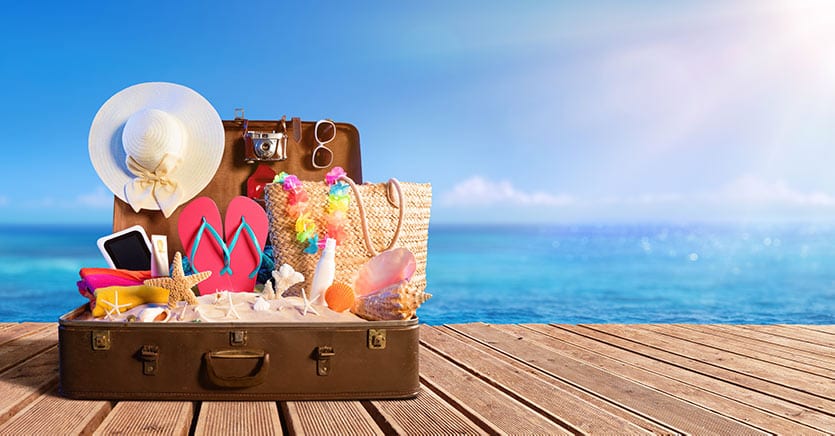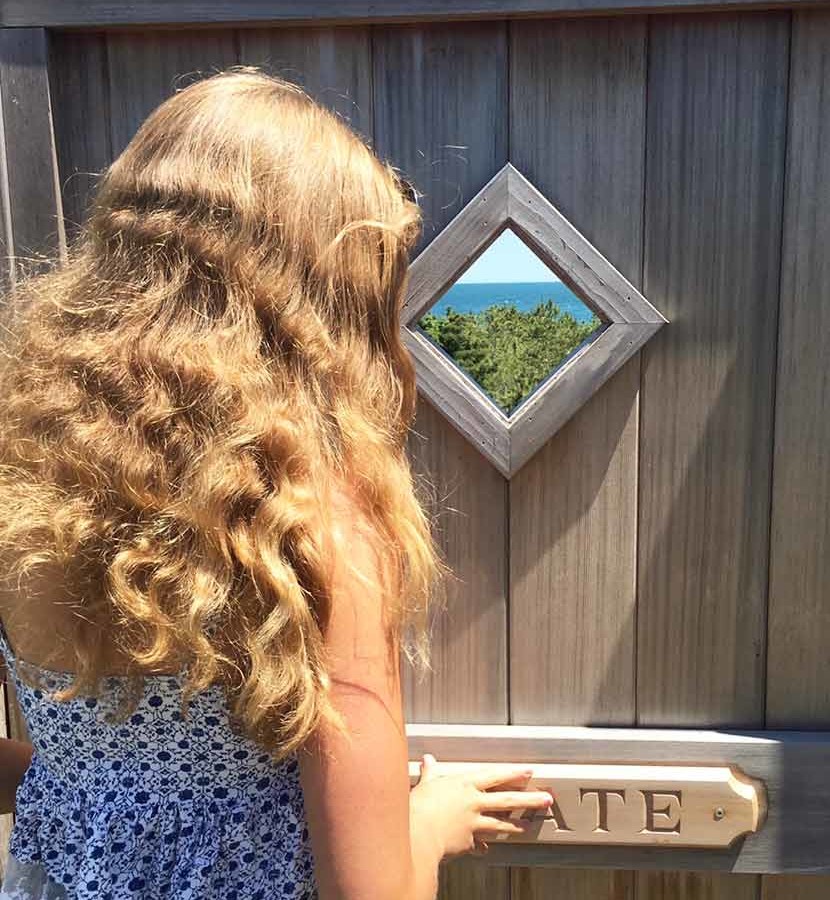Since when did my daughter become an adult? I’m still scratching my head as I write this. “Parenting adult children” is something other moms must do. I still see my daughter as a 10-year-old sometimes. And, herein lies the reason why I’m writing this piece today.
These thoughts began percolating in my head on Sunday evening, the night before my almost 19-year-old daughter was scheduled to fly to Roatan (a tiny island of Honduras) and take a boat to Utila (an even tinier, almost microscopic island of Honduras) to live with a group of other young adults and go diving for a month. Did I just write that?

Agreeing to allow her to go on this trip.
We’d given the idea a lot of thought and agreed she could go on this trip a month or two before (more on that later). But the night before she left, I couldn’t sleep. In my mind, I kept playing out a bunch of scenarios (worst-case scenarios – to be clear!), and what good did that do? None – except I was tired the whole next day.
On Monday, she thankfully made her way from Miami to Roatan and Utila with no problem. In fact, she sent a group text to family members saying, “This is the best place I’ve ever been in my entire life!” The next day she sent another, “I am having so much fun! We’ve already gone diving three times today!”
Needless to say, she is delighted! And I am, too. But, the idea of her going out into the world like that was still a big change for me. This all led me to do some reading from a very informative book I found by Julie Lythcott-Haims called, How to Raise an Adult: Break Free of the Overparenting Trap and Prepare Your Kid for Success.
Lythcott-Haims served as a Dean of Freshman at Stanford University for more than a decade, so she is very familiar with the mental and emotional maturity and competence of the “young adult” age group. She’s also surrounded by experts that weigh in on the idea of overparenting. In her book, she references therapists, educators, students, bosses, etc., and provides beneficial information for parents of adult children like me. I really love this book and recommend it highly.
Here are some thoughts on why all of this is hard and why it’s also great opportunity for everyone:

The gradual, or maybe sudden, shift toward independence can be tricky.
This probably starts at different ages for all teenagers. My daughter was eager for more independence at a very early age.
For years I took this personally. I’d think, “Why isn’t she happy just sitting at home with me watching The Gilmore Girls?” Because that’s not who she is. Period. It has nothing to do with me. That’s just her nature. This is about embracing your child’s spirit. She is who she is! And not making it all about you. Don’t do that. I did that for many years only to discover that it was never about me being a boring mom. It was always about her wanting to get out and experience everything she possibly could.
I know this for a fact because when she moved to Canada to live with her father for the second half of high school, she was exactly the same way there. She’s always been eager to get out and try new things. She jumped at the opportunity to go NYC with a friend (and her family) when she was 13, just like she jumped at this opportunity to go diving in Utila.
So, now I’ve had to turn the mirror back toward myself and wonder, “Who am I going to be here? Am I going to white-knuckle my way through this, or am I going to find a way to calmly and rationally walk through these big changes alongside her, changing my role from a manager to a consultant?” I’ve heard different experts use this phrase to describe the transition of becoming a parent to adult children, and I think it perfectly describes this time.
Finding a way to listen and to work through things together is crucial in parenting adult children.
In this case, that’s what I tried to do.
She, of course, was very enthusiastic about the opportunity to get a divemaster certification. She loved the idea of spending time with friends and an instructor she met from another gap program.
So we talked it through. We agreed on a time frame. We also agreed on costs (we would split the costs with her). And we talked a lot about safety. In fact, before she flew to Roatan, we spoke with her again about safety and the importance of always keeping her guard up when traveling outside of the country.
So, why was I still so nervous? Because we are in the middle of a pandemic? Because “What if, what if, what if?”
Then I had to check in with myself. She will be turning 19 on this trip. And this is what she wants to do. So, I agreed to let her go, and now I’m happy to hear every day how much fun she is having, and how amazing the diving program is.

Trying not to interfere – parenting an adult child means allowing her to make choices for herself.
Richard Watts of Entitlement writes, “I prefer to think of love as an unconditional promise to affirm our kids without interfering in their life course. That used to be called tough love; often as tough for the parent as for the child!” This is easier said than done but still worth every effort.
An unconditional promise to “affirm our kids” is pretty powerful. Maybe one day your kid might want to go work in a traveling circus for two years when they turn 20. If that happens, what can you do? I guess all you can do is support them and talk them through all of the details and logistics. But in the end, it’s going to be their choice. And that message does sound like love to me. The message is, “I believe in you – no matter what. You are capable and mature and have so many gifts to offer this world. I’m going to support you and your decision.”
Instead of doing this, you can choose to engage in battles over why the circus isn’t a good idea. But in the end, your child is a grown adult. They have the right to make the decisions and chart their course.
Building resilience is the big goal anyway.
Why do we try so hard to prevent our kids from having a misstep when that’s the only way they will learn? Lythcott-Haims states that “Resilience is built from real hardship and cannot be bought or manufactured.” And if there is one tool in the toolbox that I want for my daughter as she makes her way through life, it’s resilience.
It’s hard to wrap my mind around the value and importance of resilience. It’s the secret sauce that allows us to move through challenges. How do we obtain this invaluable resource? Through hardship.
There are no shortcuts. So why do we want to block our children from feeling any hardship or having any hard lessons?
It’s fascinating to think about. Personally when I think about what happened to me along the way that encouraged me to grow? It’s the mistakes, the misunderstandings, the wake-up calls. The times when I didn’t follow my gut; when I didn’t know myself well enough. The thing is – we learn from life. Life is the teacher. So, we must live. And living comes in the form of relationships, jobs, friendships, and experiences. Many will come with challenges. Inside those challenges will be opportunities for growth.
Thoughts for moms (like me) who are working through these growing pains:
One unmentioned thing about the teenage years: it’s not just about the emergence of a young person into adulthood. You, as the mom, are also changing and evolving. You’ve never been the mother of a young adult before! This is a different ballgame. It’s going to require faith and trust and redefining your relationship in a brand new way.
You are both blossoming into new versions of yourselves in this process.
Also, we can’t forget that having a hard time letting go certainly isn’t a new thing. Every time a child reaches for independence (even when riding a bike around the neighborhood at age 8), it’s uncomfortable. It takes time, and little by little it becomes easier.
My favorite line from How to Raise an Adult, states “The research shows that figuring out for themselves is a critical element to a person’s mental health. Your kids have to be there for themselves. That’s a harder truth to swallow when your kid is in the midst of a problem or worse, a crisis, but taking the long view, it’s the best medicine for them.”
Guiding your adult child in the direction of learning to be there for themselves is an inspiring goal. The messages are “To thine own self be true,” and “Please don’t forget to check in with me daily from Utila!”
In the meantime, we continue living and learning. And that’s what it’s all about, right?


